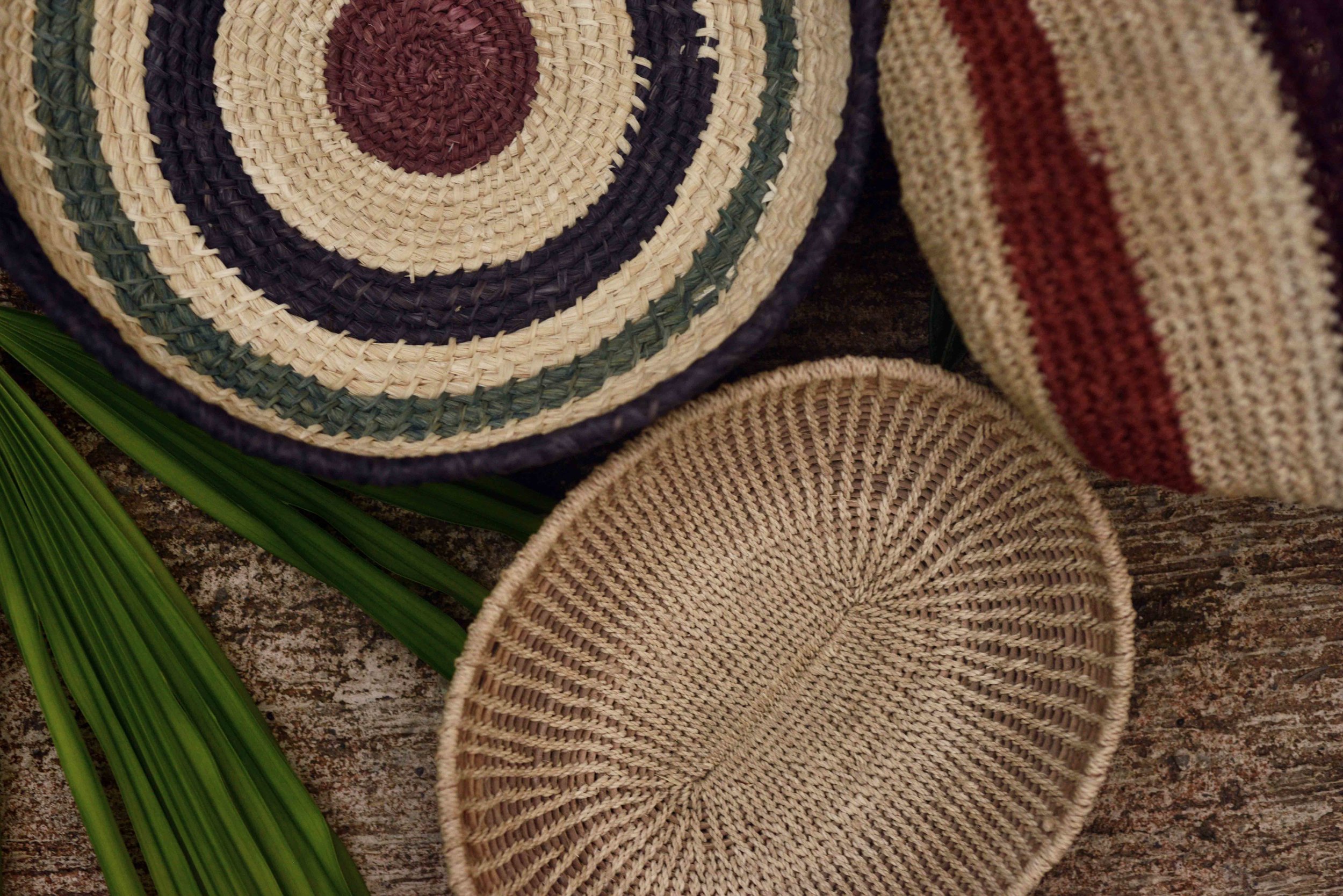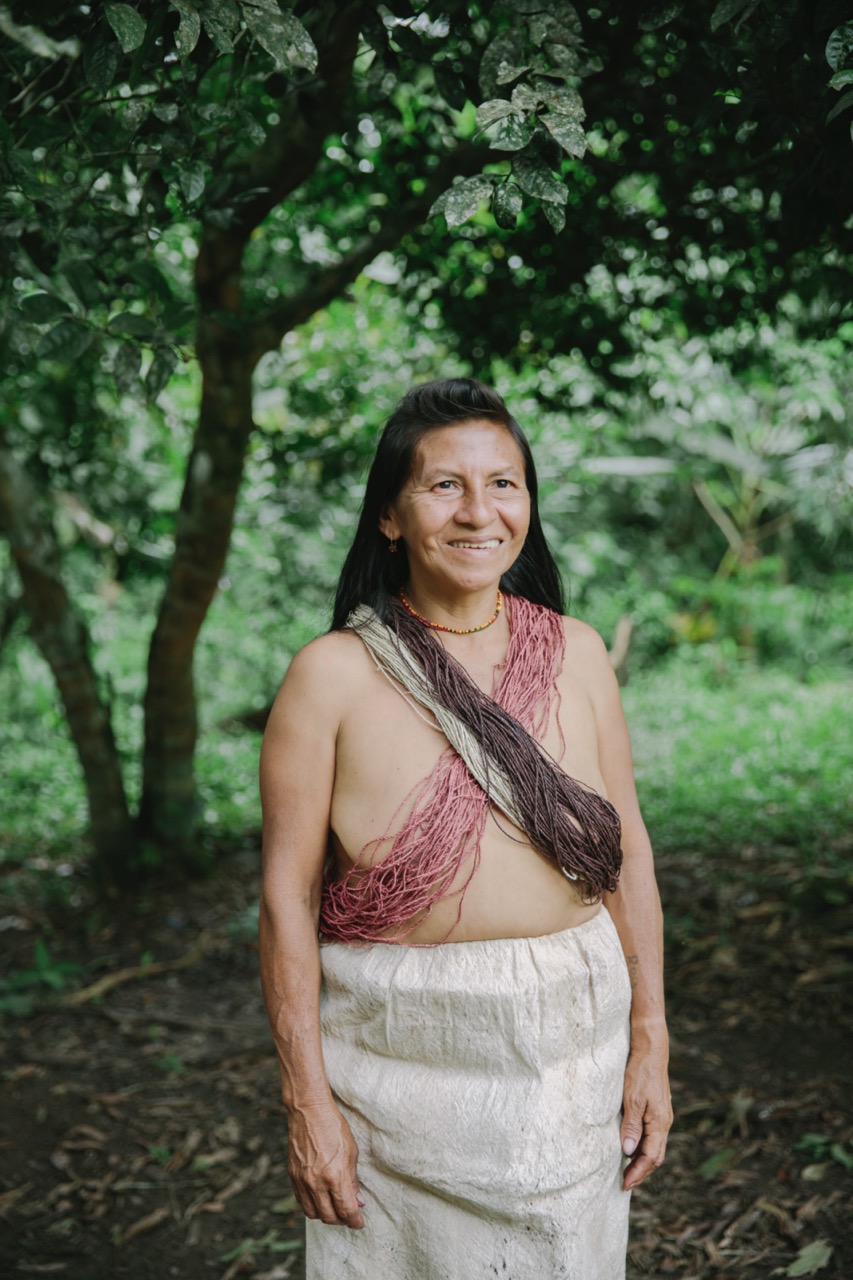Every day so called access roads built by the fossil fuel industry are encroaching deeper and deeper into the pristine rainforest territory, forcefully opening the homelands of the Waorani to foreign settlers and large scale industry presence. The ancestral territory of the Waorani has been greatly reduced by the impacts of oil extraction, logging, and colonist settlements.
Onguime’s home is Nemonpare, a small Waorani community along the Currary river that, like most Waorani communities, has no monetary system. The Waorani still live in harmony with the natural world and with what the jungle provides. The forest is their home, their supermarket, their school, their pharmacy – it is their very life. Only occasionally do the Waorani take on the long and arduous canoe journey to reach the nearest town, to sell their traditional handicrafts and hunted bushmeat in the local markets, in order to buy important essentials from the proceeds such as candles for light.
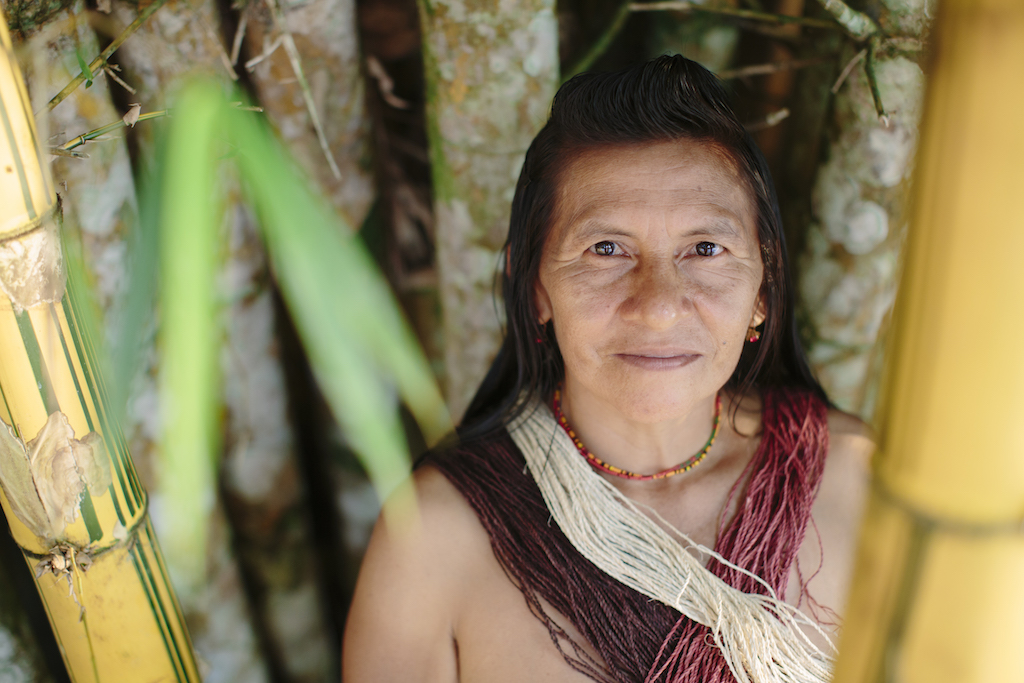

Until very recently, there was only candlelight in Nemonpare - when money would allow it. Onguime, a mother of nine children wakes up every morning, before dawn, and prepares “Chicha and Chucula” for her husband Camilo and her children. Chucula is a traditional beverage made from mashed plantains cooked in hot water, while Chicha is a fermented Yucca-based drink.
The children start school at 7.30 am; Camilo then sets off to fish. “If he catches something, we eat that, if not, with the chucula and chicha we have enough,” says Onguime.
When we visited Nemonpare as part of the solar energy program, Onguime’s family home also received a solar home system. She invited us to accompany her into the forest to collect the natural materials she uses to make traditional handicrafts.




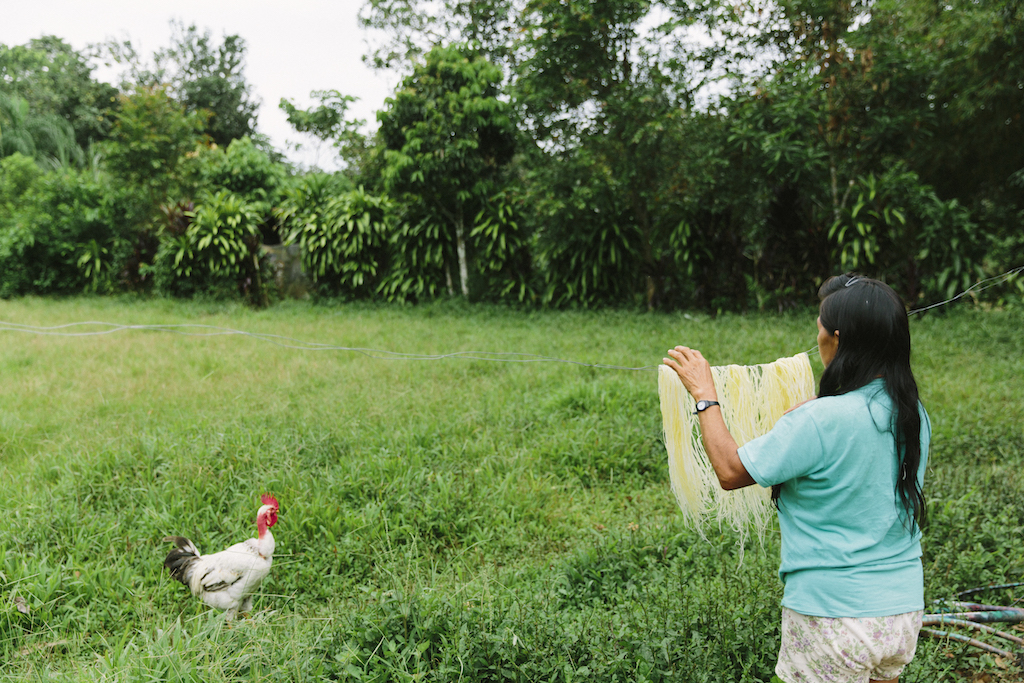

After the walk through the jungle, Onguime enthusiastically shows us each step in the process, such as the stripping, washing, dyeing and drying of the fibers of the Chambira palm, and teaches us how to weave beautiful bags made from the fibers.
Onguime finds all of the materials for her crafts, such as leaves, seeds and wood, directly in her natural surrounding. They are gifts of nature. In the same way she also finds her daily supply of food and vital medicines directly from the rainforest.






Onguime tells us that they, the Indigenous women, prefer to make their handicrafts in the darker and cooler evening hours, after 6 pm when the sun sets. During the precious daylight hours they are busy working their crops, harvesting, weeding, cooking, washing laundry in the river and doing household chores. However, they cannot always afford candles which is a prerequisite to be able to do all those activities before dawn and after sunset.
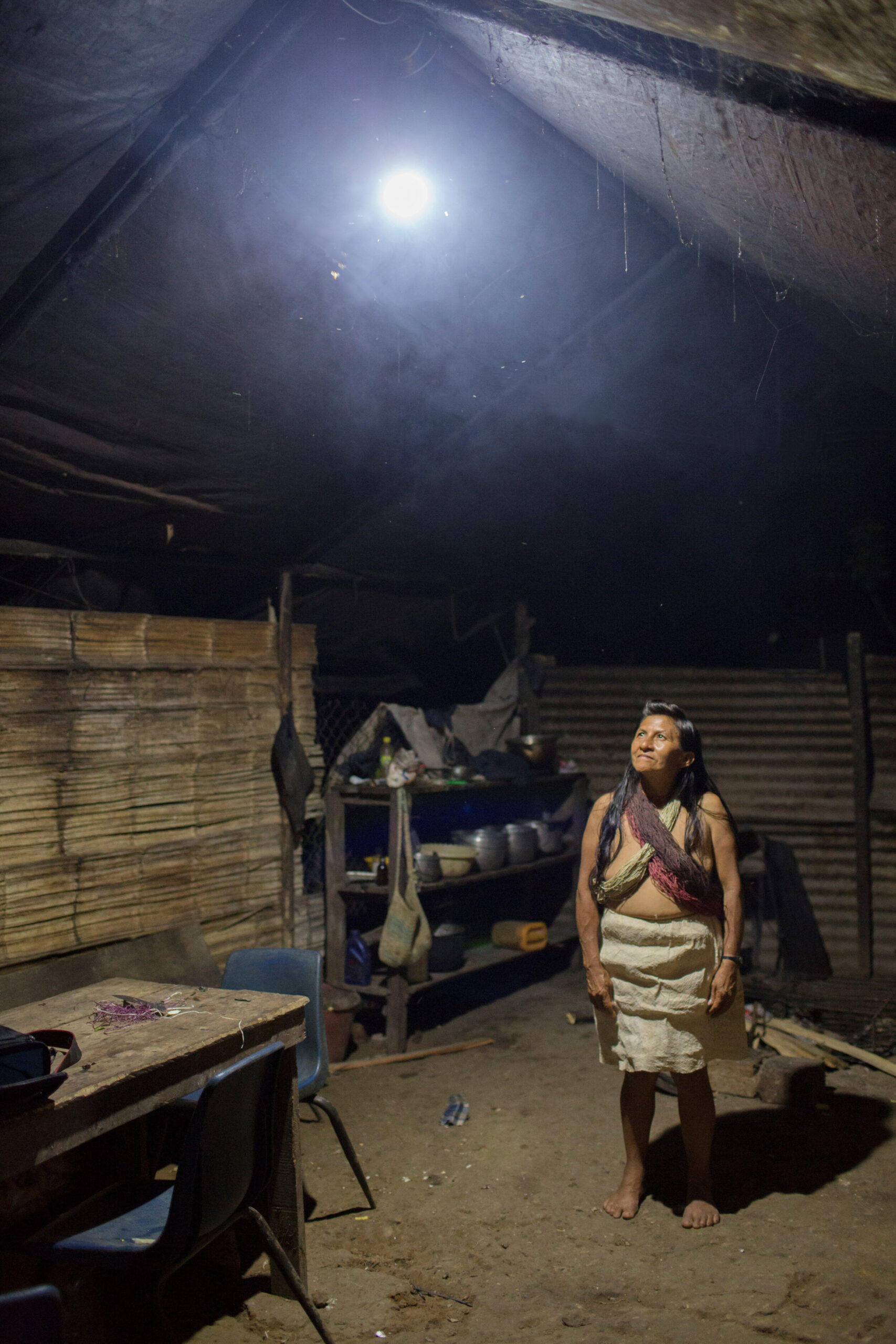
Thanks to the solar energy program, Indigenous women can now manage their daily routine in a much more flexible way. The solar home systems provide them with more than six hours more light each day – precious hours which can now be used to meet their individual needs and to fulfill their family tasks.

Onguime shares that she can now make her handicrafts freed from the pressure of having limited hours of daylight. Often the making of traditional handicrafts happens in community together with other women and their children. Waorani women weave chambira palm and make crafts representing their role in their own culture. As they work with the chambira, they build strong family and community ties. They also use the newly won hours of light to tell stories and to share their knowledge, which is an important element in the transmission of their wisdom tradition and the preservation of millennia-old knowledge about medicinal plants and living in symbiosis with the natural world.

The solar program's primary objective is not only to provide Indigenous people with sustainable access to clean solar energy, but to empower them through independent electricity access to live their lives as they wish, to strengthen them in their struggle for physical and cultural survival, and in particular, to lift the burden of energy poverty which is disproportionately worn by women and girls.
As part of the solar program a “contraparte-model” was developed, together with the Waorani and three other partnering Indigenous nationalities. This community-based model calls for an active contribution from each family to strengthen their sense of ownership and responsibility for the solar home systems. This is fulfilled by providing food and accommodations for the project team during system installation and supporting the strenuous local transportation of materials to the remote places in the Amazon, as well as offering their traditional handicraft products as an alternative form of payment.
We are delighted and humbled to share with the world not only the beautiful traditional handcrafts of the Waorani people, but also their self-determined movement to defend their rights for the long-term survival of their families, their cultures, and their ancestral rainforest homeland.
